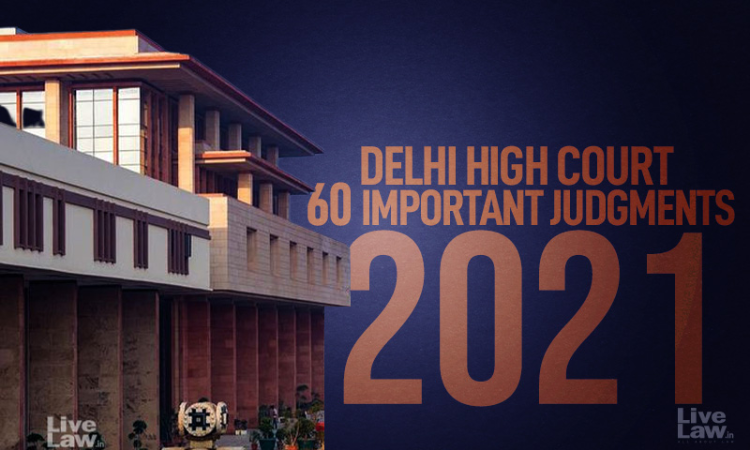- Home
- /
- Top Stories
- /
- 60 Important Judgments Of Delhi...
60 Important Judgments Of Delhi High Court In 2021
Nupur Thapliyal
31 Dec 2021 6:37 PM IST
The Delhi High Court gave several significant verdicts in 2021. LiveLaw brings to you the top 60 judgments and orders. 1. "In Its Anxiety To Suppress Dissent, In The Mind Of State, Line Between Right To Protest And Terrorist Activity Seems To Be Getting Blurred": Delhi HC In Natasha Narwal's Bail Order [Natasha Narwal v. State]"We are constrained to express, that it seems, that in its anxiety...
Next Story



